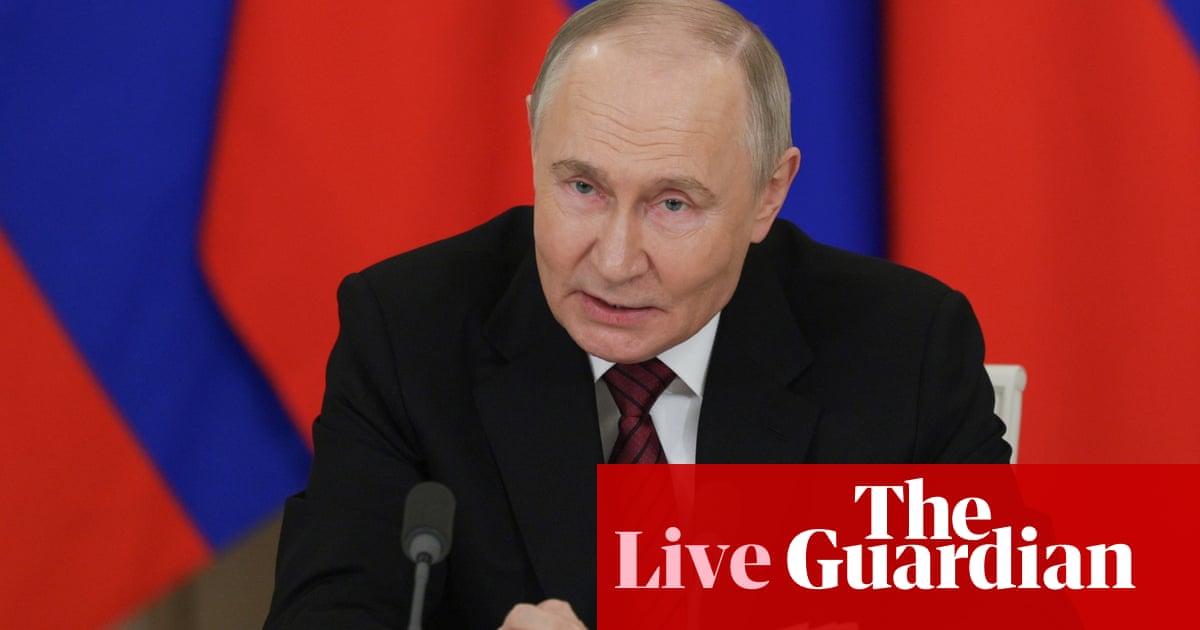Ukraine’s president,Volodymyr Zelenskyy, has just welcomed Vladimir Putin’s proposal for direct talks in Istanbul on Thursday, but said his team is expecting Moscow to agree to a “lasting” ceasefire starting tomorrow.
In a post on X, Zelenskyy, without responding explicitly to Putin’s invitation for talks in Turkey, wrote:
Welcome back to our live coverage of Russia’s war onUkraine.
Vladimir Putinhasproposed direct talkswith Ukraine on 15 May in Istanbul to achieve what he claims could be “the restoration of a long-term, lasting peace” if certain conditions are met.
In a rare televised late-night address from the Kremlin, the Russian president said he wants to address what he calls “the root causes of the conflict”, which will likely include demands thatUkrainewill never join Nato.
“We are proposing that Kyiv resume direct negotiations without any preconditions,” the Russian leader said.
Putin said that he would speak to Turkish president Recep Tayyip Erdoğan later on Sunday about facilitating the talks.
“Our proposal, as they say, is on the table. The decision is now up to the Ukrainian authorities and their curators, who are guided, it seems, by their personal political ambitions, and not by the interests of their peoples.”
Ukraine has not yet commented on Putin’s proposal but Donald Trump, whom Kyiv is reliant upon for military aid, said this could be a “potentially great day for Russia and Ukraine”, as he vows to “continue to work with both sides”.
Putin put forward the late night proposal after European leaders threatened Moscow with fresh sanctions if Russia failed to comply with an unconditional 30-day ceasefire starting tomorrow. He dismissed what he said was the attempt by some European powers to lay down “ultimatums”.
Moscow demanded yesterday that the west must stop arming Kyiv before any ceasefire can start, which would leave Ukraine in an extremely vulnerable position and likely lead to more Russian advances on the battlefield.
Analysts say that Putin is not serious about peace talks and will not agree to a ceasefire.
They see his latest proposal as a way for him to appear serious about peace to Washington but drive a further wedge between the Trump administration, which wants to bring a quick end to the war, and Kyiv, which will look inflexible if it rejects maximalist positions demanded by Moscow the Kremlin knew it would not accept.
